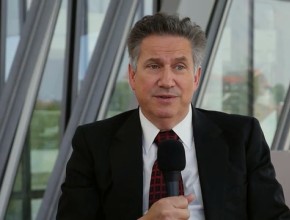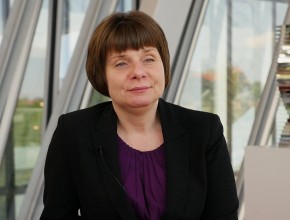In your opinion, are there any new trial results, drugs, or procedures in the field of thromboembolic disease that are worth particular attention?
Mark Crowther: In the last year or so there have been 2 major areas of investigation in thromboembolism. The first is new treatments for stroke. There was a Canadian study where they looked at mechanical removal of the clot in patients with stroke with very powerful results. Even in Canada, where it is difficult to get health-care resources, the ministries of health are gearing up to be able to provide this therapy, which means to me that they are convinced that it is a cost-effective intervention. It is very expensive to be able to have a radiologist or a neurologist on call who can do these procedures throughout the night; but to be completely frank, our stroke services are starting to wind up so that they can deliver services very much like primary coronary interventions. So I think that is one.
The second is in the field of the direct oral anticoagulants (DOACs). There has been a lot of interesting research in the last 10 years. One of the very important papers was published just a couple of weeks ago in the New England Journal of Medicine where they looked at the safety and efficacy of long-term low-dose DOACs with rivaroxaban in a dose of 10 mg once a day. They found that 10 mg was equivalently safe and effective as the 20 mg dose for long-term secondary prevention of recurrent venous thromboembolism (VTE) in patients who are otherwise going to be switched to aspirin. This is important because it establishes that the DOACs are extremely useful for a long-term prevention of recurrent VTE and very, very safe. And it really reinforces the move that is going on over last 10 years to treat patients who have VTE as if they have a chronic disease and treat them with long-term anticoagulation.
 English
English
 Español
Español
 українська
українська









